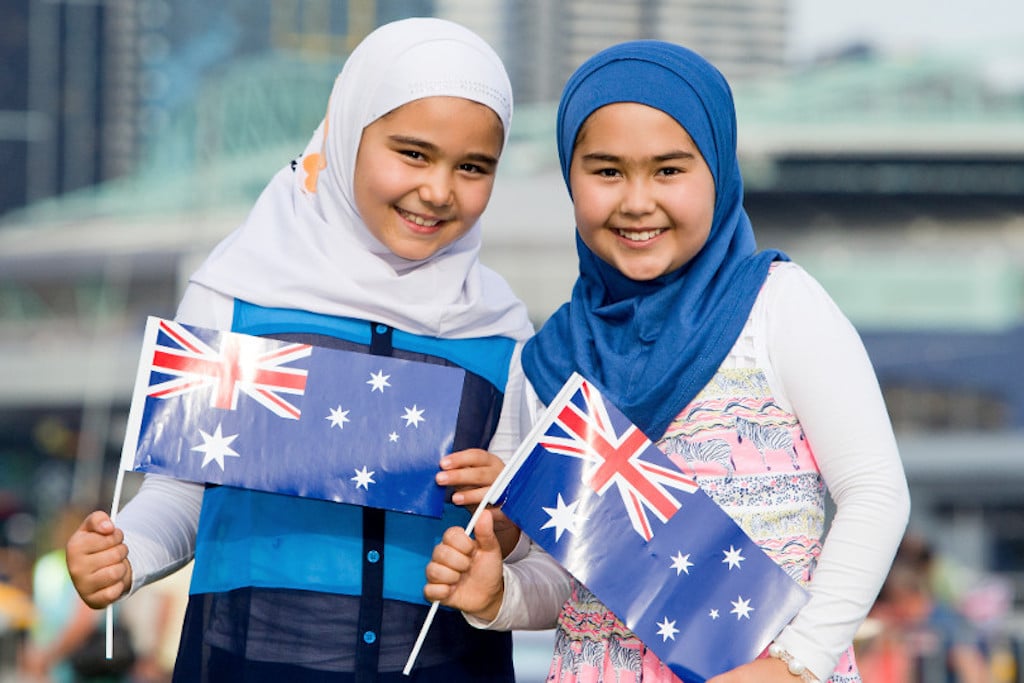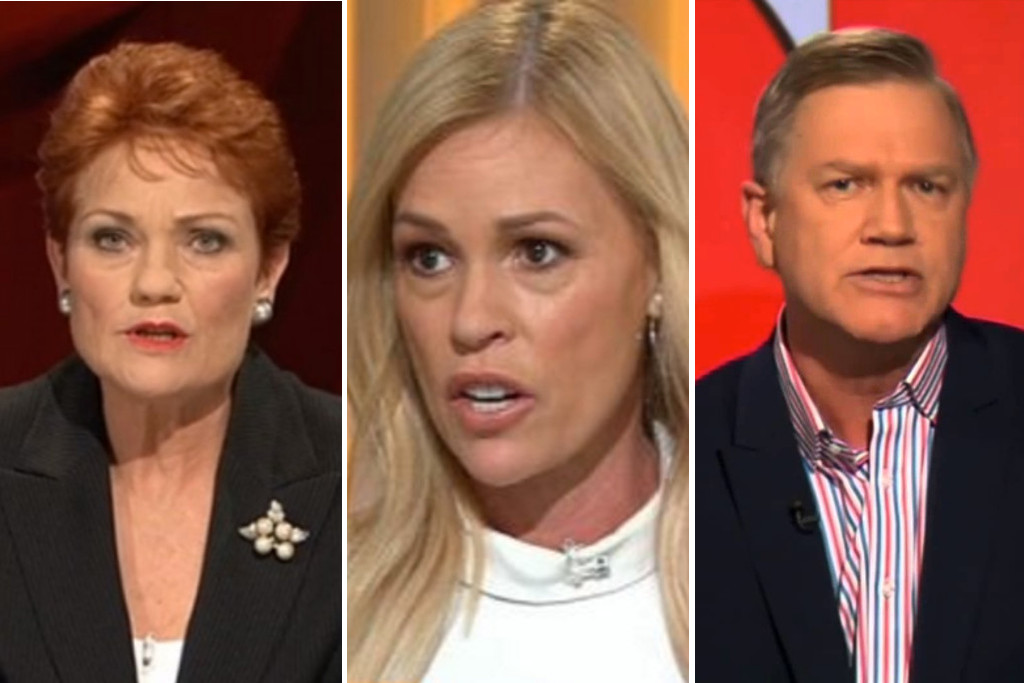Why Are We Fighting Islamophobia At The Expense Of Indigenous Australians?
For many Muslim Australians, this billboard controversy is more complicated than it looks.

Earlier this week an Australia Day billboard sponsored by the Victorian government featuring an image of two young, Muslim girls was taken down after an Islamophobic backlash on social media.
The sad but predictable reaction to the billboard, and the decision to take it down, was not met quietly. A crowdfunding campaign was launched by Dee Madigan, the executive director of advertising agency Creative Edge, with the goal of raising enough money to put the billboard back up.
A photo of 2 Aus girls celebrating Aus day. If you have a problem with that, you are the problem.https://t.co/flxFdaSd79
#putthembackup— Dee Madigan (@deemadigan) January 18, 2017
Within 24 hours the campaign had raised $125,000. Billboards featuring the girls will now go up in five locations, with additional ads still to be booked.
This is being hailed as a win by many, but for others there’s an uncomfortable irony. Some Muslim Australians, like myself, have felt forced into a position of supporting the billboard. We want to piss off the racists, counter the hate, and fight for our right to be represented in modern Australia! But, in doing so, we’re also supporting the contentious concept of “celebrating Australia Day”.
An Uncomfortable Contradiction
At best, this campaign is a sincere but misguided attempt to help us prove our “Australian-ness” (in the context of how that is defined and designated by White Australia). At worst, it’s participating in a legal fiction, a historical erasure, and an ongoing campaign of dehumanisation.
In trying to fight Islamophobia by demanding the billboard go back up, we have (inadvertently) made this all about us. We’ve completely brushed aside the history of this day and how Aboriginal and Torres Strait Islander communities feel about it. We have left the most critical voices out of the conversation. Of all moments, there is none more crucial than January 26 — Invasion Day — for this conversation to be had.
January 26 is grounded in a history of continued dispossession of the Indigenous peoples of the land, from which all other social systems are derived. Whether we like it or not, the billboard — being an explicit promotion of Australia Day — legitimises that denial of the experiences and identities of Aboriginal and Torres Strait Islanders and their ongoing struggles around the day.
It also dismisses the work Indigenous people have done and continue to do to undermine this narrative. This calls into question the existing ties of solidarity between Muslim and Aboriginal communities.
Supporting a crowdfund for a billboard that celebrates a brutal invasion, you're sending message to Aboriginal girls that they're worthless
— Wyld, Karen (@1KarenWyld) January 18, 2017
Well meaning or not, the billboard is an example of the white saviour complex; it advocates on behalf of Australian Muslims and also shuts out Indigenous voices. To be genuine allies, those behind the campaign need to get comfortable with discomfort — it would be better to take a seat instead of speak on our behalf.
Does the campaign for its reinstatement really do anything other than assuage white guilt about the day itself?
Here's what I think about this Muslim Australia Day billboard campaign: pic.twitter.com/RwILsc44bC
— Aamer Rahman (@aamer_rahman) January 18, 2017
As Larrakia Muslim writer Eugenia Flynn has suggested, the funds would have been far better spent donated to Aboriginal and Torres Strait Islander organisations. Many of these groups struggle to command such attention, let alone raise so much money.
This Conversation Is Bigger Than A Billboard
By focusing so much on the Australia Day billboard we might ultimately be missing the real issue. Australia Day has never been about all Australians. The billboard controversy is just a manifestation of that — Islamophobia is just a modern iteration of Australia’s long history of racism.
We should be able to defend against Islamophobia without denying or perpetuating the existence of another form of racism. The two are not mutually exclusive; in fact, they’re inextricably linked. To effectively fight Islamophobia, or any racism, we should delve deeper into Australia’s history, including that of our current national holiday, that plays on our seemingly desperate need for belonging and acceptance.
At the least, as Muslims who have experienced and continue to experience serious injustice and marginalisation, we need to acknowledge the hurt Aboriginal and Torres Strait Islander communities feel. We also benefit from this continued colonisation and dispossession.
I am not interested in negotiating the parameters of this conversation in a white space, with white players, and I am certainly not interested in trying to establish our place in this fantasy of a benevolent “multicultural” state with a single homogeneous “Australian” identity. This ‘identity’ is built on an ongoing genocide which still actively persecutes minorities, including Muslims.
In participating in this fantasy, we risk adopting an oppressive framework that was never designed for us. We should be challenging it and struggling with other marginalised communities and allies to create meaningful change, and a more just world.
To pursue this, we need to raise awareness and resilience in our communities. We need to mobilise, and this means proactively building solidarity with other minorities (particularly Indigenous Australians). We might make a lot of mistakes along the way, but we will have the humility to acknowledge the hurt and get back to work. Only then can we actually start to confront and dismantle the racism at the core of Australia’s identity.
–
Sara Saleh is an Arab-Australian human rights and refugee advocate, Muslim community activist, performance poet and regular media commentator. She sits on the board of Get Up!
